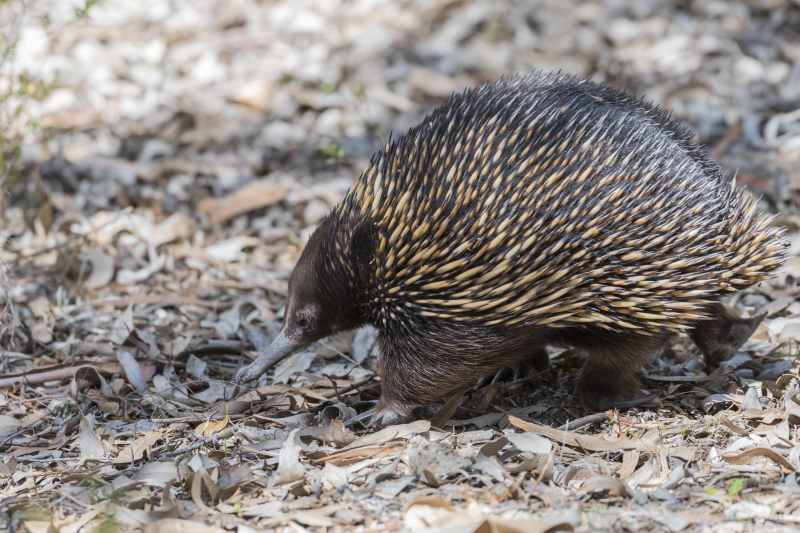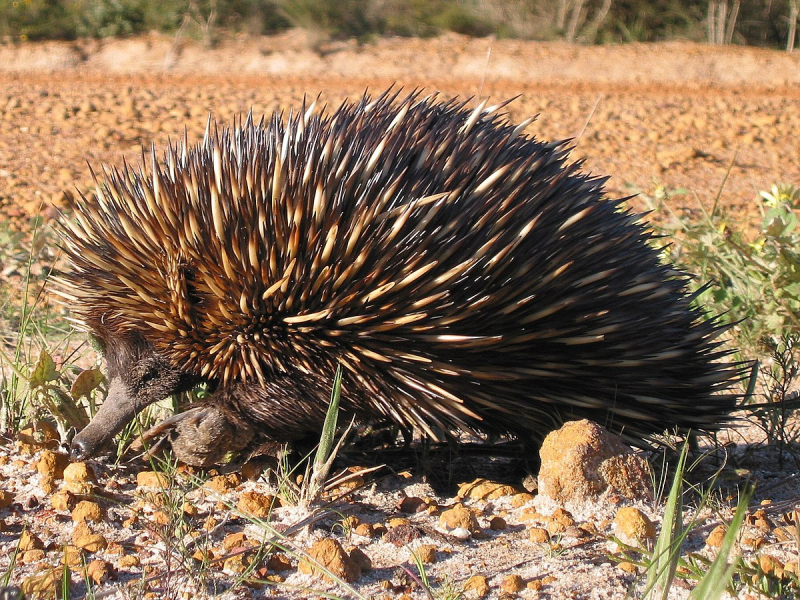Echidna

Echidnas also referred to as spiny anteaters, are monotremes (egg-laying mammals) with quill-covered coats that are members of the Tachyglossidae family. The only live mammal egg-layers and remaining members of the order Monotremata are the four extant echidna species and the platypus. In Australia and New Guinea, echidnas are found. Echidnas evolved between 20 and 50 million years ago, descending from a platypus-like monotreme. This ancestor was aquatic, but echidnas adapted to life on land.
The short-beaked echidna's diet consists largely of ants and termites, while the Zaglossus (long-beaked) species typically eat worms and insect larvae. The tongues of long-beaked echidnas have sharp, tiny spines that help them capture their prey. Echidnas are quite lethargic and sleep for about 12 hours each day. They struggle in hotter temperatures because they have a low internal heat level for a vertebrate and are unable to breathe through their mouths or sweat. They tend to be more animated in the evening and probably doze off all day to avoid the scorching Australian sun.











